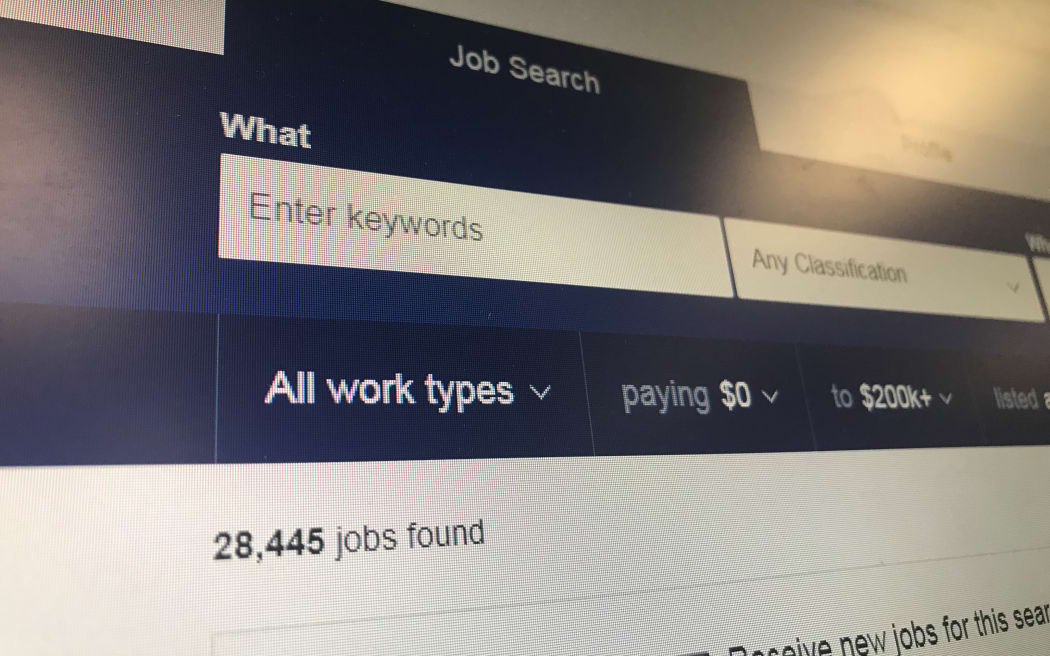
Online job search firm Seek NZ has launched its first quarterly advertised salary index. Photo: RNZ
Fresh data indicates wage growth may have plateaued and is tracking below the rate of annual inflation.
Online job search firm Seek NZ has launched its first quarterly advertised salary index (ASI), indicating annual salaries rose 4.4 percent in the three months ended February, and 4.3 percent in the three months ended December.
That was in contrast to the Statistics NZ's broader-based, labour cost index that showed wage growth rising steeply over the past few quarters.
Seek senior economist Matt Cowgill said the ASI showed wage growth was lagging behind annual inflation, which rose an annual 7.2 percent in the December quarter.
"I would expect it will be somewhat reassuring to the Reserve Bank of New Zealand that we're not seeing a continued spiral, a continued acceleration of growth in advertised salaries," Cowgill said.
"The RBNZ expects the growth in the labour cost index to continue to pick up a bit from here and then to fall. And what we see in our advertised salary index, I think is consistent with the RBNZ's expectations.
"I think it's at least reasonable to hope that we might have seen the worst of inflation, but it's still likely to remain high, remain uncomfortably high for a while yet."
Seek country manager Rob Clark said jobs it advertised represented about half of the jobs on offer, with the other half of all vacancies filled by word of mouth.
While Stats NZ's labour market data was more comprehensive, Clark said Seek's data covered 30 industry classifications, representing a cross section of jobs and was also a good indication of how the labour market was tracking.
Among the findings was strong, 16 percent, salary growth for lowest paid jobs as opposed to a 5.3 percent increase in salaries for the highest paid roles.
He said part of the reason was an ongoing shortage of workers looking for low paid work, particularly in hospitality and tourism, and also because many New Zealanders had moved up the employment ladder to higher paid roles during the height of the pandemic.
Another reason was employers were finding it necessary to offer higher pay to entice people unwilling to travel into work every day, with "work from home" still the top keyword search for people looking for jobs.
Most jobs in hospitality and tourism cannot be done from home, Clark said. "And so that does create a bit of friction, but it also creates changes in the supply and demand for those types of roles.
"Working from home is in high demand and for those who can't do that, I think probably many feel like they're missing out."





